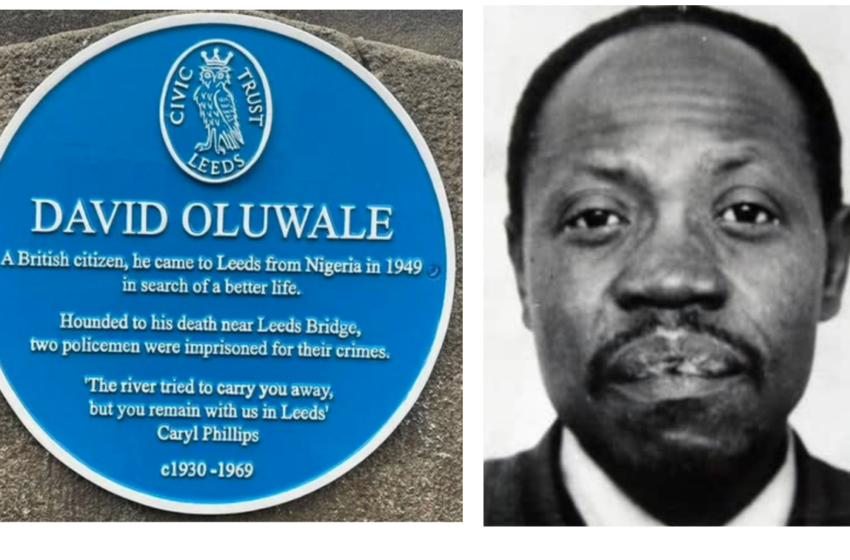
Leeds man admits destroying David Oluwale blue plaque
A sixty-year-old man from Bramley has told Leeds Magistrates’ Court that he tore down a tribute dedicated to David Oluwale, a British-Nigerian man who drowned in 1969 after being chased by the police.
Gregory Palmer removed the blue plaque from Leeds Bridge last July and threw it into the River Aire.
It was the third time the plaque had been stolen or vandalised since being unveiled in April 2022, with police treating the incidents as hate crimes.
CCTV was subsequently installed on the bridge and a tracker was placed inside the plaque, which enabled police to identify Palmer after it was removed again. Palmer was seen on footage removing the plaque and throwing it in the river on July 7.
But in court, he said he tore down the plaque because of racist graffiti which had been written on it, a version of events that prosecutors dispute.
The case will resume in court on October 16 where a hearing will establish the facts surrounding the destruction of the blue plaque.
Palmer was also charged with two separate offences related to racially aggravated damage to the entrance of the Marks and Spencer store on Wellington Street in Leeds.
A trial on these charges will begin on October 13. Palmer admitted writing on the exterior of the supermarket but denies it was racially aggravated.
Who was David Oluwale?
- David Oluwale arrived in Hull in 1949 as a stowaway in a cargo ship from Lagos. Upon arrival, he was jailed for being a stowaway.
- After his release, he moved to Leeds but struggled to hold down a job and a permanent residence and for the last two years of his life was homeless
- He became the target of the police officers Inspector Geoffrey Ellerker and Sergeant Kenneth Kitching who mentally and physically degraded Oluwale
- On 18 April 1969, he was chased onto a bridge over the River Aire, and his body was found in the water two weeks later
- His death was initially not treated as suspicious but a whistleblower within the police revealed the abuse and the two officers were later found guilty of his manslaughter

